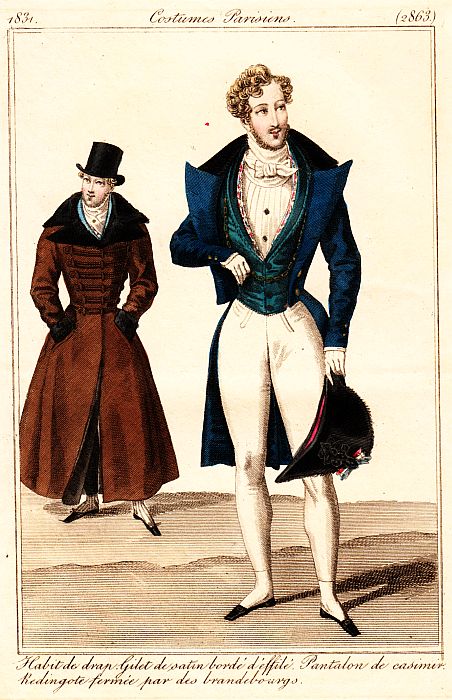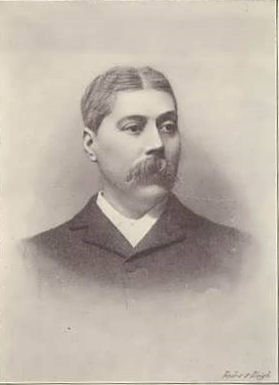|
Dandy Dick Whittington
''Dandy Dick Whittington'' was an opéra bouffe in two acts, written by George Robert Sims and composed by Ivan Caryll, based on the folktale Dick Whittington and His Cat. In this version, Dandy Dick performs in a circus and loves the owners' daughter. The circus goes to Siam, where Dick unexpectedly receives a high office and marries his sweetheart. The opera premiered at the Avenue Theatre in London on 2 March 1895 and closed on 13 July 1895.Archer, William"''Theatrical World'' of 1893–1897" Walter Scott, Ltd., p. 404 It starred May Yohé as Dick Whittington, Ethel Haydon as Alice, and Henry Wright as Larry O'Brannagan. The conductor was Landon Ronald.Sims, George Robert''My Life: Sixty years' recollections of Bohemian London'' Eveleigh Nash Company Limited: London, 1917, p. 324 The show was written as a vehicle for Yohé, who had starred in ''Little Christopher Columbus'' by the same authors, and producer William Greet leased the theatre especially for ''Dandy Dick Whitti ... [...More Info...] [...Related Items...] OR: [Wikipedia] [Google] [Baidu] |
Pantomime
Pantomime (; informally panto) is a type of musical comedy stage production designed for family entertainment. It was developed in England and is performed throughout the United Kingdom, Ireland and (to a lesser extent) in other English-speaking countries, especially during the Christmas and New Year season. Modern pantomime includes songs, gags, slapstick comedy and dancing. It employs gender-crossing actors and combines topical humour with a story more or less based on a well-known fairy tale, fable or folk tale.Reid-Walsh, Jacqueline. "Pantomime", ''The Oxford Encyclopedia of Children's Literature'', Jack Zipes (ed.), Oxford University Press (2006), Pantomime is a participatory form of theatre, in which the audience is encouraged and expected to sing along with certain parts of the music and shout out phrases to the performers. Pantomime has a long theatrical history in Western culture dating back to the era of classical theatre. It developed partly from the 16th century c ... [...More Info...] [...Related Items...] OR: [Wikipedia] [Google] [Baidu] |
Operas
Opera is a form of theatre in which music is a fundamental component and dramatic roles are taken by singers. Such a "work" (the literal translation of the Italian word "opera") is typically a collaboration between a composer and a librettist and incorporates a number of the performing arts, such as acting, scenery, costume, and sometimes dance or ballet. The performance is typically given in an opera house, accompanied by an orchestra or smaller musical ensemble, which since the early 19th century has been led by a conductor. Although musical theatre is closely related to opera, the two are considered to be distinct from one another. Opera is a key part of the Western classical music tradition. Originally understood as an entirely sung piece, in contrast to a play with songs, opera has come to include numerous genres, including some that include spoken dialogue such as ''Singspiel'' and ''Opéra comique''. In traditional number opera, singers employ two styles of singing: ... [...More Info...] [...Related Items...] OR: [Wikipedia] [Google] [Baidu] |
English-language Operas
English is a West Germanic language of the Indo-European language family, with its earliest forms spoken by the inhabitants of early medieval England. It is named after the Angles, one of the ancient Germanic peoples that migrated to the island of Great Britain. Existing on a dialect continuum with Scots, and then closest related to the Low Saxon and Frisian languages, English is genealogically West Germanic. However, its vocabulary is also distinctively influenced by dialects of France (about 29% of Modern English words) and Latin (also about 29%), plus some grammar and a small amount of core vocabulary influenced by Old Norse (a North Germanic language). Speakers of English are called Anglophones. The earliest forms of English, collectively known as Old English, evolved from a group of West Germanic (Ingvaeonic) dialects brought to Great Britain by Anglo-Saxon settlers in the 5th century and further mutated by Norse-speaking Viking settlers starting in the 8th and 9th ... [...More Info...] [...Related Items...] OR: [Wikipedia] [Google] [Baidu] |
English Comic Operas
English usually refers to: * English language * English people English may also refer to: Peoples, culture, and language * ''English'', an adjective for something of, from, or related to England ** English national identity, an identity and common culture ** English language in England, a variant of the English language spoken in England * English languages (other) * English studies, the study of English language and literature * ''English'', an Amish term for non-Amish, regardless of ethnicity Individuals * English (surname), a list of notable people with the surname ''English'' * People with the given name ** English McConnell (1882–1928), Irish footballer ** English Fisher (1928–2011), American boxing coach ** English Gardner (b. 1992), American track and field sprinter Places United States * English, Indiana, a town * English, Kentucky, an unincorporated community * English, Brazoria County, Texas, an unincorporated community * Engli ... [...More Info...] [...Related Items...] OR: [Wikipedia] [Google] [Baidu] |
1895 Operas
Events January–March * January 5 – Dreyfus affair: French officer Alfred Dreyfus is stripped of his army rank, and sentenced to life imprisonment on Devil's Island. * January 12 – The National Trust for Places of Historic Interest or Natural Beauty is founded in England by Octavia Hill, Robert Hunter and Canon Hardwicke Rawnsley. * January 13 – First Italo-Ethiopian War: Battle of Coatit – Italian forces defeat the Ethiopians. * January 17 – Félix Faure is elected President of the French Republic, after the resignation of Jean Casimir-Perier. * February 9 – Mintonette, later known as volleyball, is created by William G. Morgan at Holyoke, Massachusetts. * February 11 – The lowest ever UK temperature of is recorded at Braemar, in Aberdeenshire. This record is equalled in 1982, and again in 1995. * February 14 – Oscar Wilde's last play, the comedy ''The Importance of Being Earnest'', is first shown at St ... [...More Info...] [...Related Items...] OR: [Wikipedia] [Google] [Baidu] |
Roland Cunningham
Roland Macquarie Cunningham (1872 – 3 May 1958) was an Australian-born British singer and actor of the late Victorian and Edwardian eras. He began his professional career in comic opera in London in 1895 and appeared briefly with the D'Oyly Carte Opera Company in 1899. In the early years of the next century, he appeared in Edwardian musical comedies in both Britain and America. In 1910, he starred in the long-running original London production of ''The Chocolate Soldier''. Life and career Cunningham was born in New South Wales, Australia. A tenor, he made his London debut in 1895 in the opéra bouffe ''Dandy Dick Whittington'' at the Avenue Theatre. In 1892, he appeared in the comic opera ''Toto and Tata'', composed by Antoine Banes, as Gaston Manners. He toured for the D'Oyly Carte Opera Company's 'D' Company from July to September in 1899, playing John Manners in ''Haddon Hall'' as well as appearing in ''The Lucky Star''. In the same year he married his wife, Mabel A ... [...More Info...] [...Related Items...] OR: [Wikipedia] [Google] [Baidu] |
Dandy Dick Whittington Cast
A dandy is a man who places particular importance upon physical appearance, refined language, and leisurely hobbies, pursued with the appearance of nonchalance. A dandy could be a self-made man who strove to imitate an aristocratic lifestyle despite coming from a middle-class background, especially in late 18th- and early 19th-century Britain. Previous manifestations of the ''petit-maître'' (French for "small master") and the Muscadin have been noted by John C. Prevost, but the modern practice of dandyism first appeared in the revolutionary 1790s, both in London and in Paris. The dandy cultivated cynical reserve, yet to such extremes that novelist George Meredith, himself no dandy, once defined cynicism as "intellectual dandyism". Some took a more benign view; Thomas Carlyle wrote in ''Sartor Resartus'' that a dandy was no more than "a clothes-wearing man". Honoré de Balzac introduced the perfectly worldly and unmoved Henri de Marsay in '' La fille aux yeux d'or'' (1835), a part ... [...More Info...] [...Related Items...] OR: [Wikipedia] [Google] [Baidu] |
Pantomime Dame
A pantomime dame is a traditional role in British pantomime. It is part of the theatrical tradition of ''travesti'' portrayal of female characters by male actors in drag. Dame characters are often played either in an extremely camp style, or else by men acting butch in women's clothing. They usually wear heavy make up and big hair, have exaggerated physical features, and perform in an over-the-top style. Dame characters Characters who are played as pantomime dames are often, though not exclusively, older, matronly women. They may be the protagonist's mother, as in ''Jack and the Beanstalk'' and ''Robinson Crusoe'', or a nursemaid to the protagonist, as in ''Sleeping Beauty'' and ''Snow White''. Although often warm and sympathetic characters, dames may also be employed as comic antagonists, such as with the Ugly Sisters in ''Cinderella''. Although some pantomimes traditionally do not contain standard dame roles, certain productions of those stories add a dame character, for examp ... [...More Info...] [...Related Items...] OR: [Wikipedia] [Google] [Baidu] |
Comic Opera
Comic opera, sometimes known as light opera, is a sung dramatic work of a light or comic nature, usually with a happy ending and often including spoken dialogue. Forms of comic opera first developed in late 17th-century Italy. By the 1730s, a new operatic genre, ''opera buffa'', emerged as an alternative to '' opera seria''. It quickly made its way to France, where it became ''opéra comique'', and eventually, in the following century, French operetta, with Jacques Offenbach as its most accomplished practitioner. The influence of the Italian and French forms spread to other parts of Europe. Many countries developed their own genres of comic opera, incorporating the Italian and French models along with their own musical traditions. Examples include German ''singspiel'', Viennese operetta, Spanish '' zarzuela'', Russian comic opera, English ballad and Savoy opera, North American operetta and musical comedy. Italian ''opera buffa'' In late 17th-century Italy, light-hearted m ... [...More Info...] [...Related Items...] OR: [Wikipedia] [Google] [Baidu] |
William Greet
William Greet (1851 – 25 April 1914) was a British theatre manager from the end of the 19th century and into the 20th century. Originally a business manager for other theatre licensees in the 1880s, he branched out as an independent manager in the 1890s and was associated with various London theatres, principally the Lyric, the Savoy and the Adelphi Theatres. Biography Greet was the seventh child and eldest son of Captain Wiliam Greet R.N., commander of the recruiting ship H.M.S. Crocodile, and the former Sarah Vallance Barling. Greet's younger brother was the actor-manager Ben Greet. Greet was born on his father's ship, christened at St Peter ad Vincula at the Tower of London, and educated at the Royal Naval School, New Cross. He served as a Lieutenant of the Royal Marine Artillery from 1871 to 1877. Career He worked first as a farmer and then began working in theatre management in the 1880s. Between 1884 and 1890, Greet was successively business manager at Toole's T ... [...More Info...] [...Related Items...] OR: [Wikipedia] [Google] [Baidu] |






